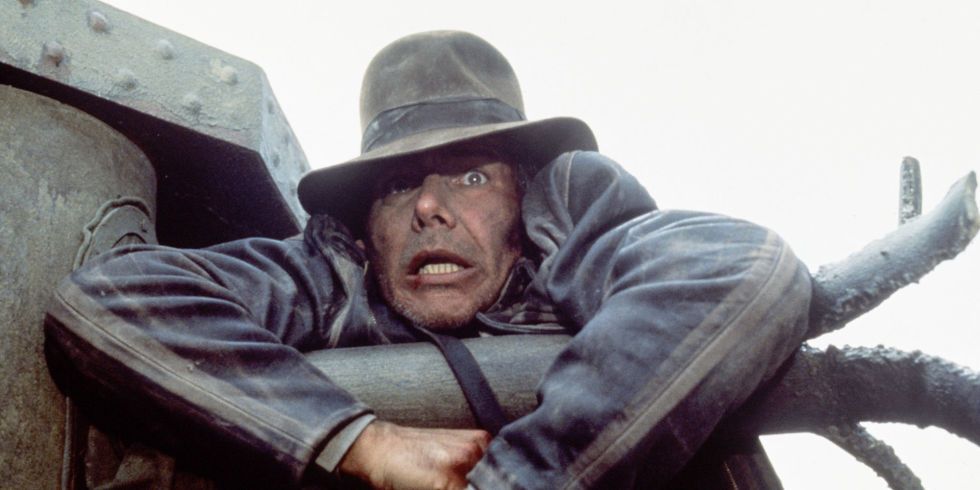The ruthless world of Hollywood moves at a breakneck pace, meaning that the most important decisions such as who to cast, where to film, would direct etc. must be made quickly and decisively in order to meet production schedules.
Unfortunately, while you may have some kick-ass movie talent at the helm, just one bad decision can make even the most promising production flop miserably. The road to Hollywood is littered with poor decisions and ruined careers. Here are some of the worst decisions in filmmaking history.
Actors Turning Down Iconic Roles
Sometimes it’s not the directors who make the worst choices. Many experienced actors with plenty of awards under their belts clearly don’t have the talent for spotting a role of a lifetime, as evidenced by the many who have turned down roles that later went on to become legendary.
Burt Reynolds
One of the most notorious actors for making this mistake was action movie hero Burt Reynolds. Throughout his career, he turned down some of the most important and lucrative roles in movie history.
He declined to star as James Bond (later played by Sean Connery) and Indiana Jones (later played by Harrison Ford) – films which went on to become icons of cinema that collectively grossed billions of dollars. Reynolds later said in a 2016 interview with Business Insider that he “deeply regretted” not taking these roles at the time.
Gwyneth Paltrow
Other major examples include Reese Witherspoon turned down the lead role in the 1996 horror classic Scream, and even more painfully, Gwyneth Paltrow’s decision not to play the role of Rose in Titanic, one of the highest grossing films ever made.
Speaking to US Magazine recently, Paltrow admitted to going to lengths to avoid discussing this gaffe, as it is one of the most regrettable points of her entire career. We feel your pain Gwen, this is the show business equivalent of turning down a chance to work with The Beatles because you thought their music style wouldn’t catch on, which actually happened by the way.
Bizarre Choices From Company Heads
Sometimes it’s not the actors that make disastrous choices, but the casting directors. There are too many instances of potentially amazing films just tanking because the casting was completely off, with sometimes a single role having the potential to ruin an entire film.
One of the most memorable (or forgettable) instances of this in recent memory is the decision to cast former Disney pretty boy Jared Leto as The Joker for the release of Suicide Squad.
While his role was hyped up for months leading up to release, it turned out to be a disappointing, awkward performance, especially when compared to Heath Ledger’s unforgettable portrayal of the same character just a few years earlier.
The whole world was primed for a new Joker to watch, and the decision of the casting directors to pick Leto for the role turned out to be a historical blunder.
The distribution company for the film, Warner Bros. Studios, has taken a lot of flack in recent years for how they have handled the DC Universe films such as Suicide Squad, with their inability to adapt their films to the taste of modern fans precipitating a decline in box office takings.
There are some casting choices which just seem so immediately terrible to most moviegoers that you have to wonder what was going through the heads of the people in charge. Take for example the casting of Elijah Wood in the 2005 film Green Street.
One would think not to cast one of the most stereotypically “nice” guys in Hollywood as a hardened football hooligan, and it was clear from the offset that the soft-spoken former Hobbit was not the right person for this role, with the film rightfully flopping.
Then there are the decisions which are just straight-up offensive, such as Scarlet Johansson in Ghost in the Shell, Christian Bale in Exodus and Mickey Rooney in Breakfast at Tiffanies.
These are all major roles played by actors that didn’t fit the role at a base level, as the original novels and screenplays dictated, and the decision to instead pick big-name white actors justifiably trashed these films in the box office.
It’s adapt or die in the film industry, and it has been for every sector involved right from the outset. Just take a look at some of the biggest companies involved in the film to see how an ability to keep with the times can be deadly.
Remember Betamax? The home-video format was once touted to take over the world, but when they refused to take the rise of the Sony VHS format seriously, they quickly died a death. Even on the corporate side of Hollywood, one bad decision can spell the end.
This wouldn’t be the last time a company in the industry has made some epic, costly mistakes; according to Betway’s “bad decisions” blog, the now-defunct Blockbuster actually turned down an opportunity to team up with streaming giant Netflix back in 2000, costing Blockbuster over $100 million. It seems that epic blunders are not just limited to casting agents and studios.
Directors Getting it Wrong
Sometimes the directors simply make fatal artistic decisions that doom a film from inception. Many of these decisions come from inexplicable deviations from novels that a film might be based on, seemingly for no reason whatsoever.
Take for example the film I Am Legend (no spoilers here, don’t worry) in which the ending completely differs from the book in a way which renders the entire plot worthless.
Then there’s the popular-but-flawed 2013 remake of The Great Gatsby, which again proved to audiences and book lovers alike that it is impossible to adapt Fitzgerald’s classic for the big screen. The novel is a philosophical treatise on American greed and excess, not a diamond-studded Hollywood love story.
Overall, however, the most common screw-ups directors make is deciding to pile on the sequels.
Did we really need ten Fast & Furious movies? Or three Iron Man films?
While a sequel to The Terminator makes sense, the decision to crank out not two, but three installments of The Hangover quite literally defies all reason and logic.
While making a film is, of course, a notoriously difficult and fraught exercise, you can’t help but think that directors have sometimes quite literally lost the plot.
The process that leads to the production of a Hollywood movie is one that requires quite literally thousands of decisions, but as you can see here, all it takes is one bad one to doom a film to failure.
The best of the best films all require flawless decision making it seems.







